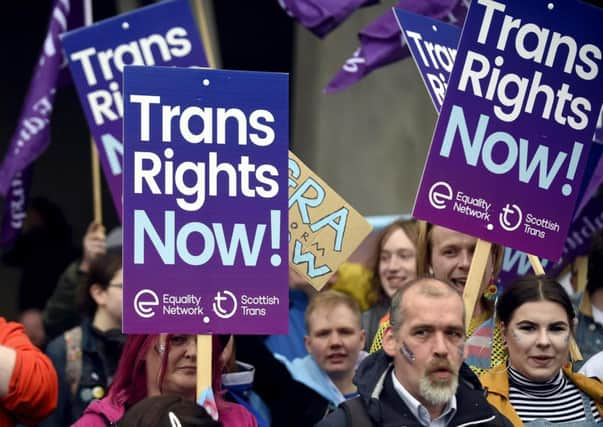History teaches us that predatory men will abuse trans rights – Gina Davidson


A new front opened up in the general election campaign this week, one which for many people not ensconsed in the bubble of identity politics, would have caught them by surprise: women’s rights. You might have thought such things were relatively settled. Women have sex-based rights in law because of the historic discrimination against them, rooted mainly in being the one kind of human with the ability to give birth. Of course it’s taken centuries of fighting for women to have the same social and economic status as men (even working-class men who had their own battles); to allow women to be able to vote, to be able to work (even when married), of being able to get a bank account and a mortgage without a husband, to be able to participate in sport. It’s almost hard to believe that in the not-too-distant past some of these things were not possible. There is much still to do. Equal pay is still not a reality. Sexual assaults and rapes are on the rise, while convictions continue to fall.
Domestic violence is only just being recognised as a crime which goes beyond a Friday night “battering” and extends to insidious forms such as coercive control. Then there’s FGM, the rise of “sex-gone-wrong” killings thanks to the increase in violent porn, and a twisted kind of logic that attempts to sell prostitution as some kind of feminist career choice.
A simple act of inclusive goodness?
Advertisement
Hide AdAdvertisement
Hide AdAll of these things are issues because of historical and present-day male violence, male desire, male prejudice – and women are protected in law as a result. However it appears those rights are up for debate. Yesterday on Radio 4’s Today show, former Labour MP turned Liberal Democrat Luciana Berger was asked by presenter Nick Robinson if the law should treat him “as a woman if I chose to identify as one?” The response from Berger was a resounding “yes”. The question stemmed from the proposed changes to the Gender Recognition Act, which would remove barriers for transgender people to change their birth certificates, to match the gender they believe they are, rather than their biology.
It sounds like a simple act of inclusive goodness. Give those suffering from gender dysphoria an easier route to living their lives as the gender they prefer, with a piece of paper which may help ease their pain, and make their lives more straightforward.
Many, including women, certainly believe it’s only right this should happen.
But if men can be women in law with just a say so, without even the need of a medical diagnosis that they are indeed dysphoric, how then can women be protected in law from those who would do them harm? Where are the boundaries of safety and privacy and dignity drawn when men can access all areas; areas previously protected for women because of their sex?
This is an argument, not about whether transwomen are a risk, but about the historical facts show those of a predatory nature will use any tool to enable them. And the vast majority of those predators are men. The current official policies in Labour, SNP, Liberal Democrat and Green parties, all support Berger’s view, though there has been some push back by female members of the SNP and Labour in recent weeks.
But, as a result, a question being raised by thousands of centre-left women during this election campaign, is “who can I vote for?”
